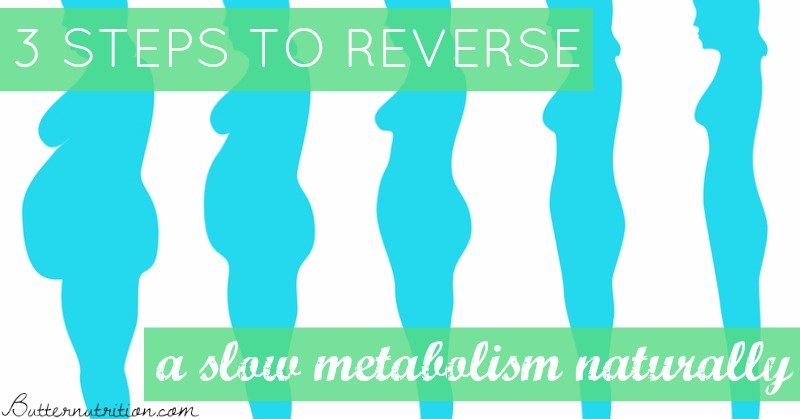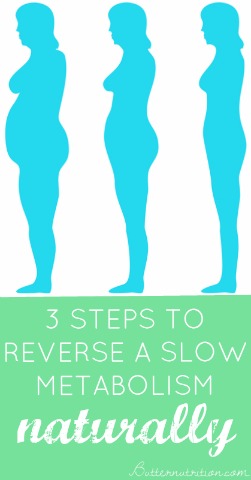 The metabolism is very adaptive, yet it doesn’t like to be toyed with. Unfortunately, you toy with your metabolism every time you drastically change your eating habits; including things like going low-carb, vegan, cutting out calories and other diet manipulating techniques. Often times, diet experimentation can go on for years and before you know it your stuck with a metabolism so slow, it almost can seem like you gain weight just looking at food! So what do you do when that happens? Butter Nutrition has a post all about reversing your slowed metabolism with diet, and it just may come in very handy for you! Happy reading 😉
The metabolism is very adaptive, yet it doesn’t like to be toyed with. Unfortunately, you toy with your metabolism every time you drastically change your eating habits; including things like going low-carb, vegan, cutting out calories and other diet manipulating techniques. Often times, diet experimentation can go on for years and before you know it your stuck with a metabolism so slow, it almost can seem like you gain weight just looking at food! So what do you do when that happens? Butter Nutrition has a post all about reversing your slowed metabolism with diet, and it just may come in very handy for you! Happy reading 😉
“When your body decides to slow your metabolism it’s all about one thing: survival! It’s not about your body trying to conspire against you and ruin your life. It’s your body making a wise decision to sacrifice long term health for short term survival because it’s being told to do so (usually through food/nutrient scarcity)! The slowing of the metabolism allows your body to go LONGER on less food. The body also tends to hold on to fat as a protective mechanism.
So if this is where you’re at, today I’m going to tell you how to go about reversing your slowed metabolism. Knowing what habits to change is the most important place to start!
Step 1: Identify the slow metabolism trigger:
- Not eating enough food
To make an analogy, think of your body like a house. If you’re not making enough money to pay your electricity bill, what do you do? Well, you turn down the heat in your house to compensate, as well as you may not turn the lights on as often or fail to perform regular maintenance. The body operates in a similar way. When there are not enough calories coming in, the body saves energy by reducing body temperature (slowing the metabolism), turning down digestive juices (making digestion weaker), reducing the pulse, and slowing thyroid function (resulting in less energy). This is a built-in survival response by the body, to help you go longer on less food. And this is not a bad thing. It’s actually a very good thing, because it’s going to help keep you alive in an emergency or famine.” [keep reading…]
